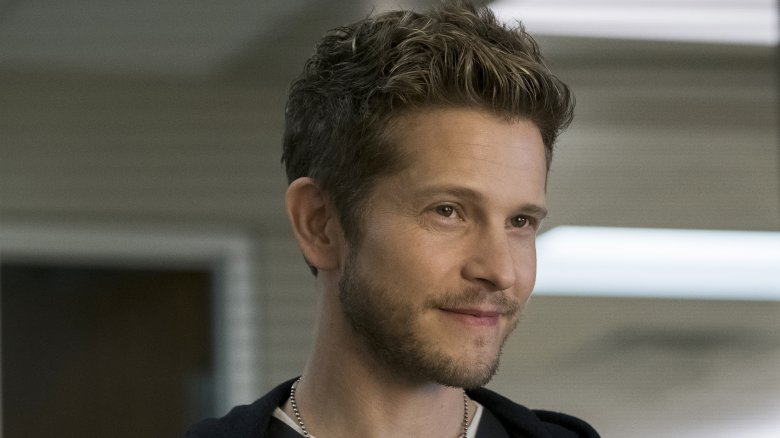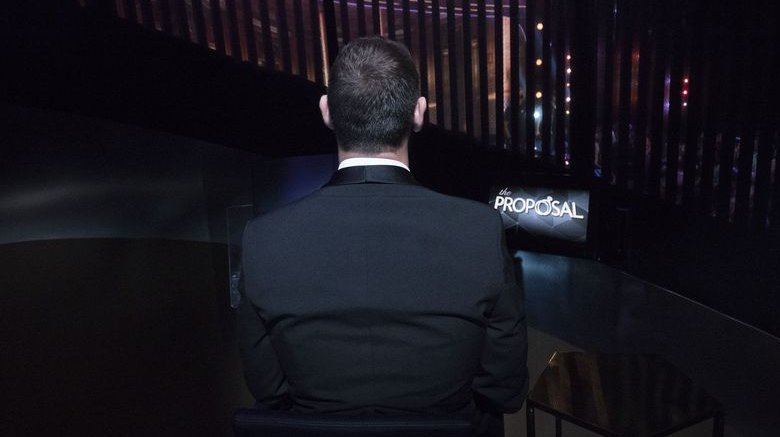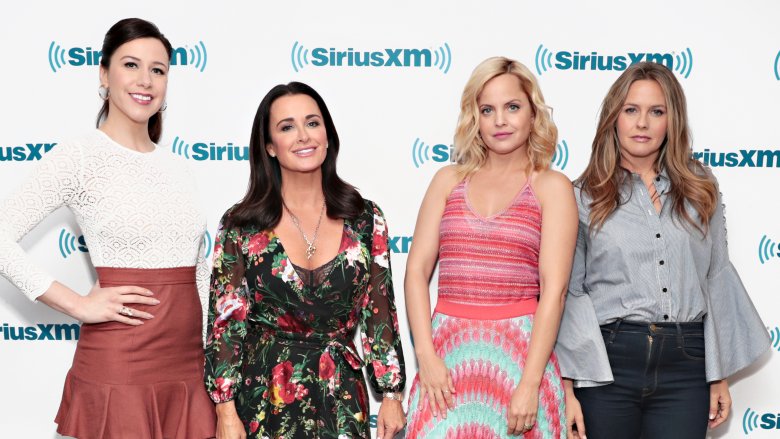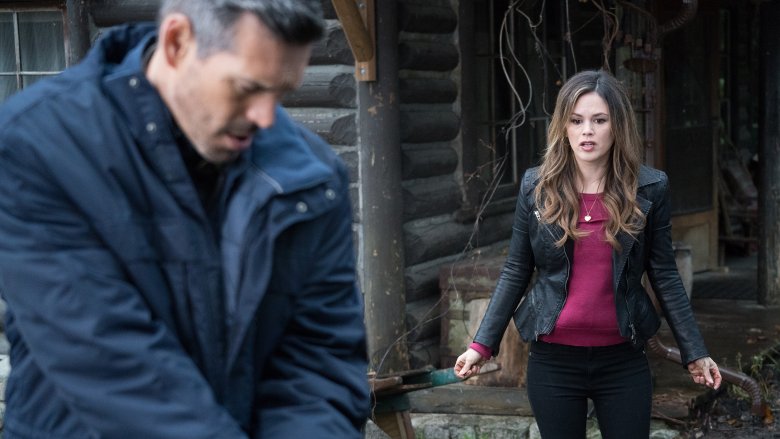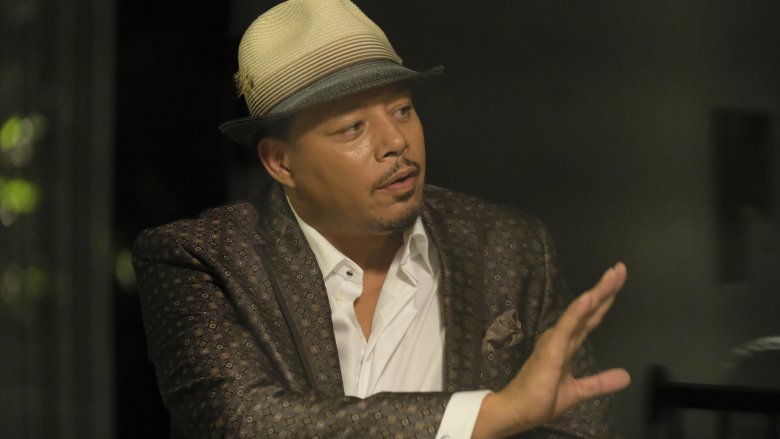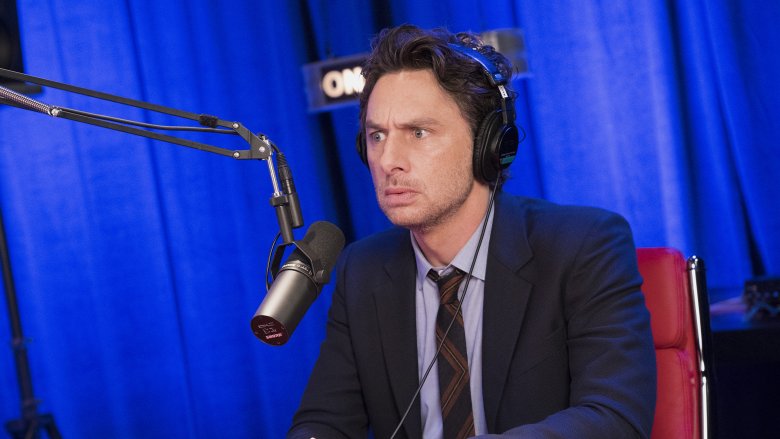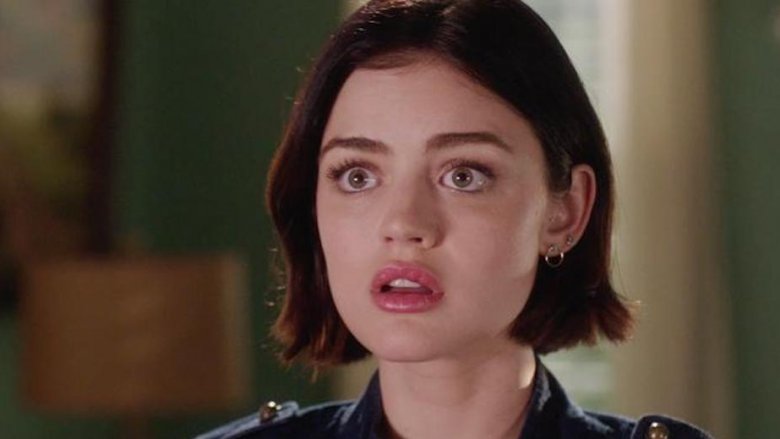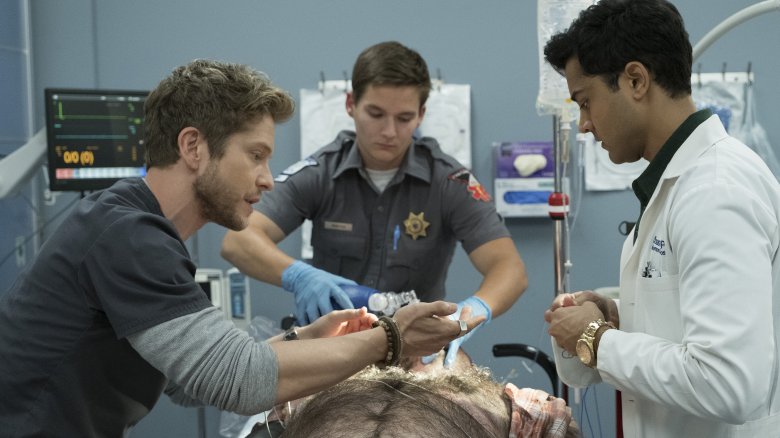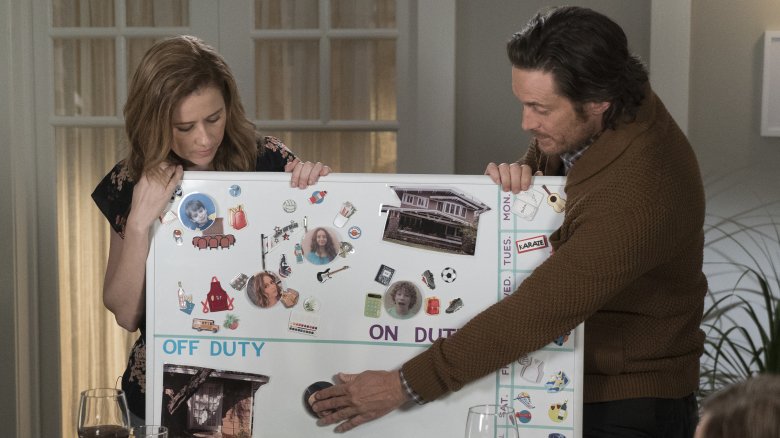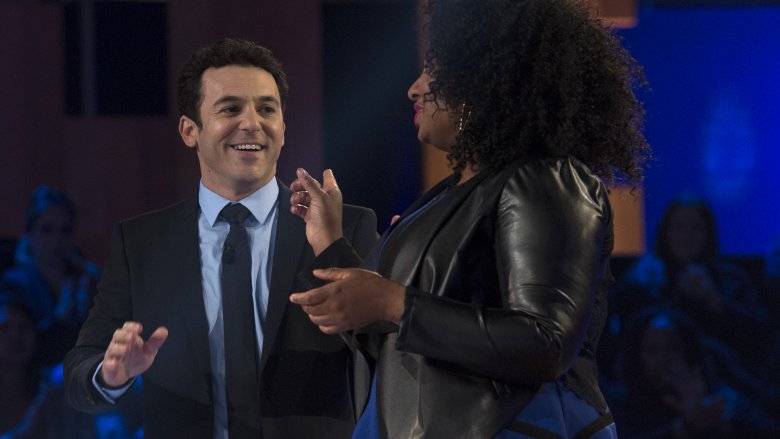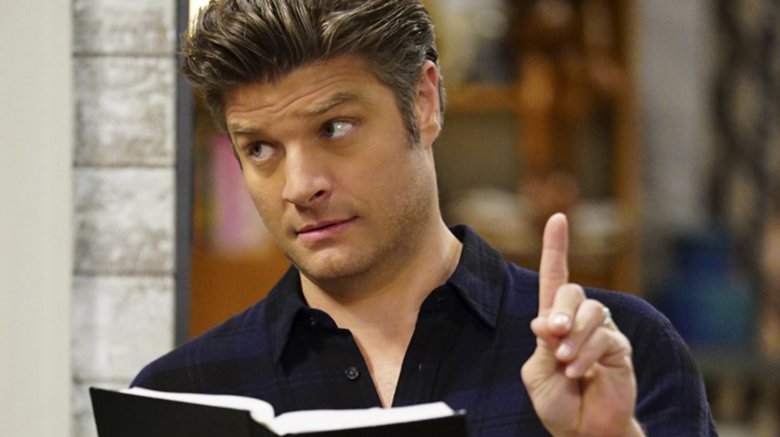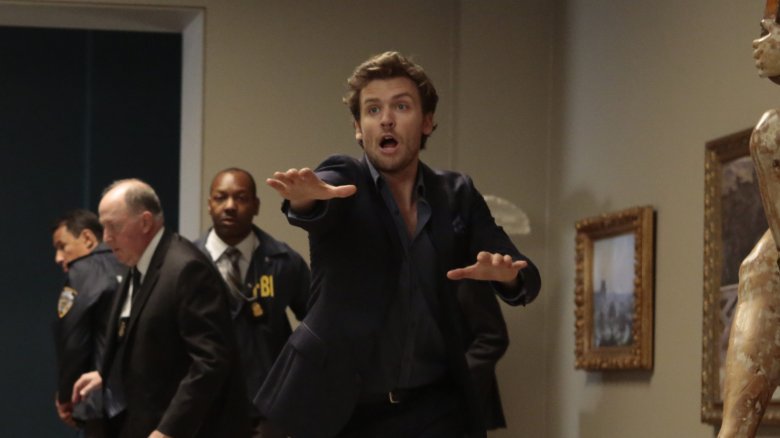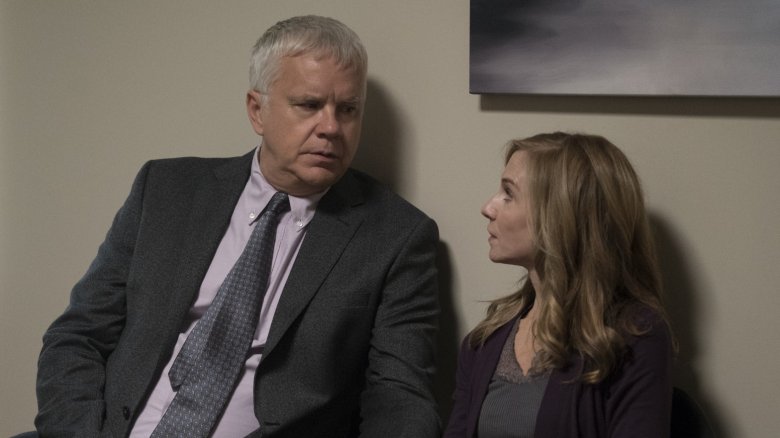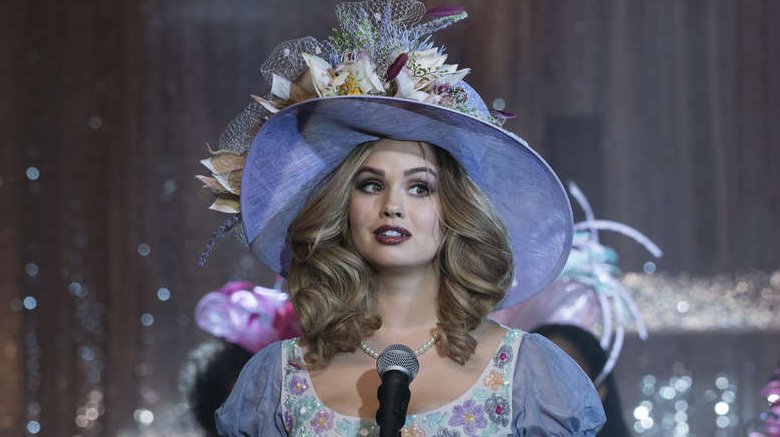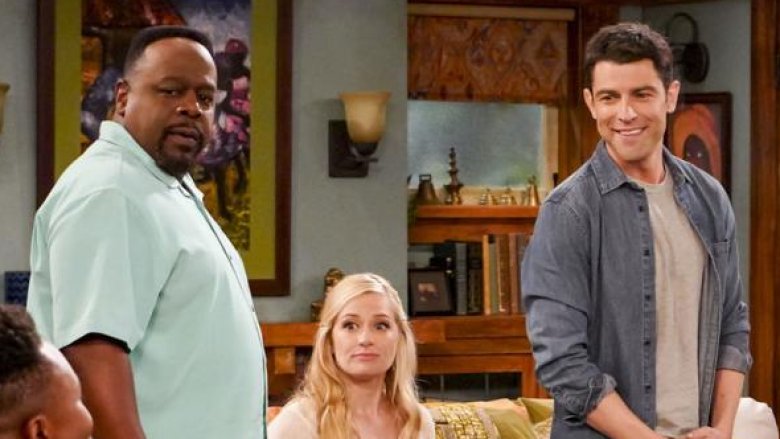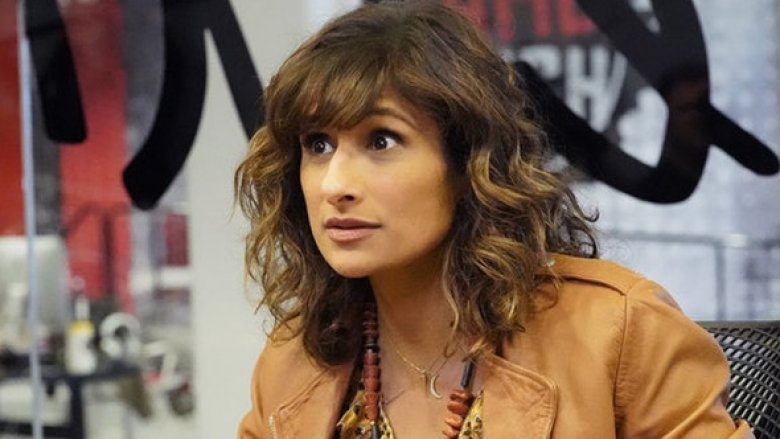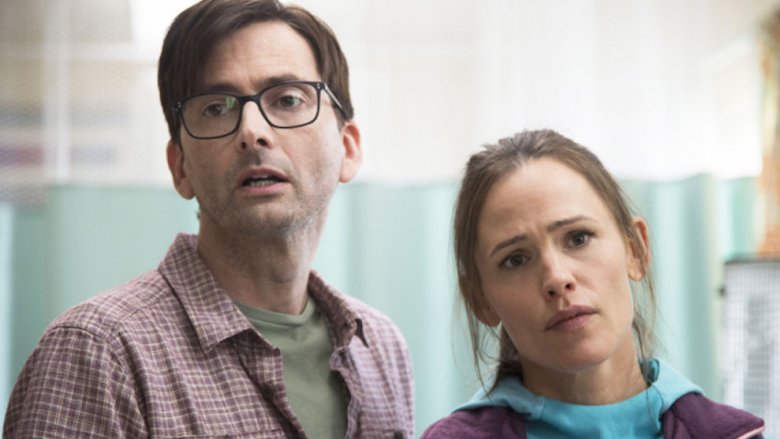The Worst TV Shows Of 2018
Even a few years removed from the ends of all-time classic shows such as Mad Men, Breaking Bad, and Parks and Recreation, we're still in "The Second Golden Age of TV," also known as "Peak TV," also known as "There is Far Too Much Good Stuff to Watch on Broadcast Television, Cable, and At Least Four Streaming Services." There are just so many things to watch: Game of Thrones is entering its final days, Westworld is coming back, The Walking Dead remains engaging, Atlanta is still great, Silicon Valley survived the departure of T.J. Miller, and the most popular show on network TV is a revival of Roseanne, a show that went off the air in 1997. Still, for all of the can't-miss TV going on, there are lots of series critics say you can go ahead and skip. The following shows are our picks for the very worst of 2018.
The Proposal
Enough time has apparently passed since notorious early 2000s dating reality shows/demeaning social experiments Joe Millionaire and Who Wants to Marry a Multimillionaire coerced people into settling into relationships and getting married as quickly as possible. Like some kind of game show from an alternate, horrible universe, The Proposal feels like producers took an entire cycle of The Bachelor — in which one guy chooses a suitable mate from a horde of thin, blonde drug company reps — and made it just 60 minutes long. Also, nobody — not the contestants or even viewers at home — gets to meet or even see this so-called eligible bachelor (or bachelorette), because the contestants are vying for the heart of an individual whose identity remains literally hidden until near the end of the show, at which point, somebody proposes marriage and someone accepts.
Jack Holmes of Esquire was deeply disheartened by The Proposal, calling it "a show for a nation that has given up" and adding that it "demands that viewers completely suspend their reasoning faculties, critical thinking skills, and any expectation that what is happening on their TV screen might be real."
American Woman
No, American Woman is not a show about the continuing exploits of the title character in the classic rock song by the Guess Who, an irresistible femme fatale from the U.S. of A. This is a sitcom about a reality star. Bravo's The Real Housewives franchise has finally dropped all pretense that it's "real" and has gone full-on scripted. Well, sort of. American Woman is a single-camera sitcom set in the 1970s, based on the childhood of The Real Housewives of Beverly Hills star Kyle Richards, who back in the Me Decade starred on TV shows (Little House on the Prairie) and in horror movies (Halloween).
This '70s throwback stars '90s icon Alicia Silverstone as Bonnie Nolan, a newly single mother struggling to raise her two daughters against the backdrop of second-wave feminism. That's a lot to cover, and the show was created by the usually more than able John Riggi, a veteran of 30 Rock and The Larry Sanders Show. American Woman just isn't as good as those shows — but how could it be? Marty Brown of Common Sense Media says it's "undermined by stereotypes," while the staff at Newsday succinctly called it "muddled, plodding, unengaging."
Take Two
Take Two is what summer television is all about — shows that are light and breezy, entertaining on a warm summer night, but not so engaging that you miss them when they quietly disappear by the time the new fall season starts up. Getting to that pleasant-enough place is delicate business, and if showrunners veer too far, they wind up with a series so lightweight that it's silly, and so familiar that it seems derivative.
Take Two is about a veteran L.A. cop who teams up with an actress researching an upcoming role in a police thriller. If that sounds reminiscent of Castle, a previous ABC light drama about a cop that teamed up to solve crimes with a non-cop (in that case a mystery novelist), it's because Andrew W. Marlowe created both shows.
Starring as the smirking cop: Eddie Cibrian, best known for CSI: Miami and his marriage to LeAnn Rimes. Starring as the flighty actress: Rachel Bilson of The O.C. and Hart of Dixie. Daniel Fienberg of The Hollywood Reporter found himself "disappointed" with Take Two, explaining, "Speaking as somebody who watched every episode of Castle (though sometimes with disdain), is that there's absolutely no reason why this couldn't be a perfect vehicle for Bilson. Glenn Garvin of Reason knows why: "It's the dreadful scripts."
Terrence Howard's Fright Club
A prank show hosted by Oscar-nominated actor, Empire star, and Hollywood oddball Terrence Howard feels like the concept of a just-okay SNL sketch, particularly with a title that's a play on the title of Fight Club. And yet this is a real thing, a special that ran as part of Fox's summer lineup of filler and reality TV.
Co-created by Howard and his wife, Mira Pak Howard, the show is a reality/dark comedy hybrid with a horror movie premise: Howard invites his friends (and a fan who thinks she won a contest) to a spooky haunted estate in America's spooky haunted estate capital, New Orleans. Then Howard and his cohorts scare their victims with elaborate scares from things like swamp monsters and realistically rendered (meaning gory) voodoo rituals. At the conclusion of each prank, Howard gently lets his victims know they've been pranked. The audience, meanwhile, receives no such courtesy.
Sweetbitter
Sweetbitter is about a naive person named Tess (Ella Purnell) who leaves her hometown and family behind to move to the big city in 2006. New York is unexpectedly tough, until our protagonist is taken under the wing of colleagues at the fancy restaurant where she finds work almost immediately. Why? She reminds them of themselves, only younger and more optimistic, of course. Cliches are a big problem with Sweetbitter, a very slow-moving show where nothing much happens beyond a woman working in a restaurant and making friendships with other servers. But at least it isn't long — the Starz drama has a 30-minute runtime, as opposed to the hour usually allocated to dramas.
That being said, the food and wine scenes are as lovingly shot as those on any food documentary, and the lighting is gorgeous and moody, both in the dim restaurant and on the sparkling streets of Manhattan. It all adds up, according to critics like Robert Lloyd of the Los Angeles Times, to "a meal that looks great on the plate but makes little impression on the tongue." He's kinder than Ben Travers of IndieWire, who in called Sweetbitter "shallow to the point of being narcissistic."
Alex, Inc.
ABC promoted this midseason replacement as the triumphant return of Zach Braff, away from TV for almost a decade since Scrubs finished its long run. Those ads are a little coy about what Alex, Inc. is actually about. It would appear to be a typical family comedy about a goofy dad, his long-suffering wife, and their kids. The show is that, but more specifically it's about a guy (Alex) who has a midlife crisis, starts his own company, and documents the journey with a podcast. Based on the true story of StartUp host Alex Blumberg, Alex, Inc. allows audiences to see the not-very-visual world of people talking into microphones. While podcasts are mainstream at this point, the show treats the concept like cutting-edge technology, and most every character treats Alex like he's a genius for deciding to do one. It's in those elements where critics have found fault: as Mark A. Perigard of the Boston Herald put it, "What Alex, Inc. cries out for is that one character who doesn't think Alex is amazing, smart, sexy, funny, or God's gift to humanity."
Life Sentence
Hey, 2000s kids: Remember the 2001 Disney movie Max Keeble's Big Move? It was about a bullied middle schooler who upon learning that his family is moving, unleashes a slew of pranks and retaliation against his tormentors. But then Max's family doesn't have to move, so Max has to deal with the consequences of his actions. The CW's breezy dramedy Life Sentence offers up the same premise as Max Keeble's Big Move, except it's about a young woman named Stella (Lucy Hale from Pretty Little Liars) who thought she was dying of cancer and for years lived everyday like it was her last, only to have her cancer cured, leaving her to deal with the ramifications of her impulsive decisions. (Cancer — always hilarious.) Kevin Yeoman of ScreenRant felt the show seemed to delight in torturing its lead character while also shoehorning in a lot of cancer drama sentimentality. "Life Sentence only seems to want to laugh at life's propensity for head-kicking," he wrote. "That, in turn, makes the series' investigation of second chances overly saccharine."
The Resident
In the fall of 2017, ABC premiered The Good Doctor, which stars Freddie Highmore as a young doctor who always tries to do the right thing (and usually succeeds). Its opposite: Fox's The Resident. Matt Czuchry of Gilmore Girls and The Good Wife portrays a medical rogue who plays by his own rules. The Resident depicts the military trained (and scarred) Dr. Conrad Hawkins making rash decisions and ignoring directives from his superiors because he has a gut feeling about what crazy medical procedure to go for. He doesn't come across as heroic, just arrogant and smarmy, a hard-to-like anti-hero like Dr. House on House, or all those other "male genius who can do whatever he wants" shows of House's vintage, like Law and Order: Criminal Intent and Mad Men. And perhaps The Resident's biggest flaw is that it doesn't offer anything new to the world of TV. As Amy Amatangelo of Paste points out, "There are so many other medical shows you could be watching."
Splitting Up Together
Splitting Up Together is familiar in that it's a family sitcom about overwhelmed parents raising their kids. The series is innovative, if vaguely depressing, with its twist on the old format: Mom and Dad (Jenna Fischer and Oliver Hudson) are in the process of "consciously uncoupling," a.k.a. divorcing, but rather than have one parent move out, both parents stay in the house and keep separate living quarters so as to still provide their kids with an uninterrupted and stable home situation. While that's a very modern and true-to-life situation, it's a hard sell for a silly little sitcom. Splitting Up Together airs in the same Tuesday-night comedy block as Roseanne, so its ratings are decent, but some critics wish ABC would break up with the series. Hal Boedeker of the Orlando Sentinel, for one, doesn't see the point of watching a show in with the main couple "fell out of love," and says the show "feels like a long, forced push to get them back together."
Child Support
Ricky Gervais is a TV legend for co-creating and starring in the original British version of The Office, and he's enjoyed further success with shows such as the show business satire Extras and the nursing-home set dramedy Derek. But his latest project isn't a single-camera comedy or nuanced character study — Child Support is one part Kids Say the Darndest Things, one part convoluted game show. In a TV studio, host Fred Savage (The Wonder Years) asks an adult contestant a trivia question. If they answer correctly, their response is compared to the answer given by a member of a panel of adorable children who were asked the same questions by Gervais in what looks like a focus group situation in a creepy conference room. If the kid answers correctly, the adult player stays in the game. Another scenario: if the adult was wrong, they can save themselves if a kid panelist answers correctly; if the kid is wrong, too, then the adult is eliminated. Critics assert that this is some Child Support that can and should be skipped. Alex Reif of The Laughing Place said the questions are "painfully easy" and that "it tries too hard to be funny."
Living Biblically
If one were to adapt a high-concept, true-to-life memoir in which a person discovers truths about themselves and the world around them, what format would that project ideally take? Probably not a traditional, three-camera sitcom. And yet that's what TV producers did with humorist A.J. Jacobs' 2007 book The Year of Living Biblically. As Jacobs did in real life, his TV alter ego Chip (Jay R. Ferguson) decides to live out every last detail of his life according to the Holy Bible. While that's a refillable premise — each week Chip faces a new challenge in approaching the modern world with the tools and moral code of a man from long ago — it's difficult to make religion funny and palatable to a broad audience. A show like this runs the risk of alienating the non-religious but offending the religious. Few professional TV writers think Living Biblically pulled it off. Not only did it score just 19 percent rating on Rotten Tomatoes, but it may have also committed a grave comedy sin: According to Dan Fienberg of The Hollywood Reporter, Living Biblically "fails to follow the sitcom commandment, 'Thou shall make us laugh.'"
Deception
The early 2000s are over, but that era's biggest contribution to television endures: the crime procedural with a twist. There were tons of shows about detectives, but they all had a singular, irresistible hook. Temperance "Bones" Brennan on Bones used her genius-level knowledge and skill of forensic anthropology to study biological evidence to get her murderer. The Mentalist concerned a police consultant whose observational skills were misinterpreted as psychic ability. Castle teamed up a detective with a bestselling crime novelist. Those shows are all gone, but continue in spirit with ABC's Deception. It's about a celebrity magician (Jack Cutmore-Smith) with the celebrity magician name of Cameron Black, who, after his career is destroyed by a scandal, teams up with the FBI to help them solve crimes. Yep — he uses his gift for "illusions" to help get into the mind of criminals somehow. Critics have not found Deception very magical. "Never rising above its hokey premise, the procedural is further sunk by transparent mysteries, hollow supporting characters, and a fatal lack of surprises," said Inkoo Kang of Variety.
Here and Now
There's a lot of Oscar-winning talent behind this ambitious HBO drama. Creator Alan Ball has one for writing American Beauty, while stars Holly Hunter and Tim Robbins earned theirs for acting in The Piano and Mystic River, respectively. Unfortunately, an Academy Award doesn't guarantee future success.
Set in the progressive city of Portland, Here and Now is about a progressive family made up of a philosophy professor (Robbins), a therapist (Hunter), and their four mostly grown children, adopted from around the world. Their only biological child is in high school, where many didactic conversations about social issues are held. That directness is offset by characters' tendency to have weird dreams and prophetic hallucinations. (Imagine if Portlandia wasn't a comedy, but very serious and also ominous like The Leftovers.) It might be all just too much material for one show. According to Joel Keller of Decider, "Here and Now is so overwrought that it makes The Handmaid's Tale look like a light-hearted romp by comparison."
Insatiable
Pageants like Miss America and Miss USA haven't been a national, mainstream topic of fascination for at least a couple of decades, but every few years, Hollywood feels the need to send up these low-hanging fruits that celebrate very simplistic notions of femininity and outdated beauty standards. Netflix's Insatiable is part of that subgenre, except it also wants to say, well, something (although it isn't sure what) about society's toxic way of equating weight with personal value.
Debby Ryan, a refugee of sunny Disney Channel fare like Jessie and The Suite Life on Deck, stars in this extremely bitter show about a formerly obese teenage girl named Patty. After losing a great number of pounds, she's recruited to the pageant circuit by a seedy lawyer, which serves as a backdrop for Patty's blind, disturbing quest for revenge against anyone who was ever mean to her in her heavier days. Ben Travers of IndieWire spoke for many of his peers when he called Insatiable a "disastrous hodgepodge of mistakes," "an absolute mess," and "the worst Netflix original series yet to be released."
The Neighborhood
All in the Family was among the most popular (and controversial) shows of the 1970s. Via Carroll O'Connor's character of Archie Bunker, a stubborn conservative (at best) and unrepentant racist (at worst) representing the World War II generation, constantly arguing with his son-in-law Mike "Meathead" Stivic" (Rob Reiner) writers could debate the social issues of the day. CBS's 2018 sitcom The Neighborhood obviously emulates that classic formula. It's about a middle-class white couple (portrayed by Max Greenfield of New Girl and Beth Behrs of 2 Broke Girls) who move into a predominantly African-American area. They're happily oblivious to challenges black people face, but they're called out on it by their neighborhood's unofficial leader, a guy named Calvin (Cedric the Entertainer), who happens to harbor some strong distrust for white people.
It never quite gets to provocative, progressive All in the Family territory. "Calvin schools Dave on his assumptions, and Dave walks on eggshells. There's little debate and a lot of apologizing," notes Joanna Schneller of the Toronto Star. Mark Dolan of Common Sense Media goes farther, citing The Neighborhood for "regressive racial attitudes and bad jokes."
I Feel Bad
There's certainly nothing wrong with a TV series that aims to tell relatable truths about contemporary life. (That's probably part of why shows like This Is Us and Modern Family have performed so well.) But sometimes a show is just a bit too much of a slog in its devotion to encapsulating a realistic experience, rendering it annoying and unpalatable.
I Feel Bad is that kind of show. Feeling like a retread of countless other "stressed mom" sitcoms like Roseanne or The Middle, I Feel Bad is about a woman named Emet (the quite charismatic Sarayu Blue), a video game artist who constantly wonders (and often, aloud) if her work life suffers because of her family commitments, and if her family life suffers because of her demanding job. (I Feel Bad adds in a dopey husband and meddling parents, inviting unfavorable comparisons to Everybody Loves Raymond.)
Even the show's title hints at its problems. "I Feel Bad does not seem to know how to make comedy — or even simply story — out of its central anxieties of identity," said Sonia Saraiya of Vanity Fair.
Camping
Obnoxious and self-centered people are prime and deep targets for comedy — they're loathsome and have no idea how loathsome they are. (For example: Homer Simpson of The Simpsons, and the entire Bluth family on Arrested Development.) But what if a sitcom focused on the most odiously self-absorbed people ever dreamed up by writers... but the writers (such as Lena Dunham and Jenni Konner of Girls) didn't seem to have any clue that their characters were so unwatchably awful? That's HBO's Camping.
The eight-episode show agonizingly takes place over just a single weekend, a birthday trip for a whiny suburban milquetoast named Walt (a far-from-Doctor Who David Tennant) planned down to the minute by his wife Kathryn (Jennifer Garner), a stereotypically stiff, controlling, and uptight yuppie. They're joined by a series of annoying friends and associates played by hard-trying, well-liked actors (Juliette Lewis, Ione Skye, Brett Gelman) as they swim, hang out, and passive-aggressively gripe at one another. Matthew Gilbert of the Boston Globe said Garner's character made him feel like he "couldn't wait to get away from her to go do [the] laundry and wash the dishes."
The Alec Baldwin Show
The world's most famous Baldwin brother has done all kinds of television. He starred on the soap Knots Landing, the sitcom 30 Rock, hosts a revival of Match Game, and makes frequent appearances on Saturday Night Live to impersonate Donald Trump. In 2018, ABC granted a no-frills, one-on-one talk show to the gadabout celebrity, who is as famous for being a blowhard and tabloid fixture as he is for his work.
Not since NBC's epic fail The Jay Leno Show has one of the major broadcast networks put a chat fest in primetime, and it will probably be a long time until it happens again because The Alec Baldwin Show is just not good. Talk show interviewing is a unique skill — a host must ask simple but interesting questions that allow the guest to speak at length in an amusing fashion. Stephen Colbert and Jimmy Kimmel are good at that, and getting out of their own way. Not Baldwin, who frequently interrupts his very patient guests (Mike Myers, Ricky Gervais) so he can tell a story about his favorite subject: Alec Baldwin. "The guests are props for his observations and worldviews, or foils for stories about his brilliant career," said Verne Gay of Newsday.
Audiences didn't much care for The Alec Baldwin Show either. It did so badly that ABC moved it from its prominent Sunday night time slot to bury it in the hinterlands of Saturday.
